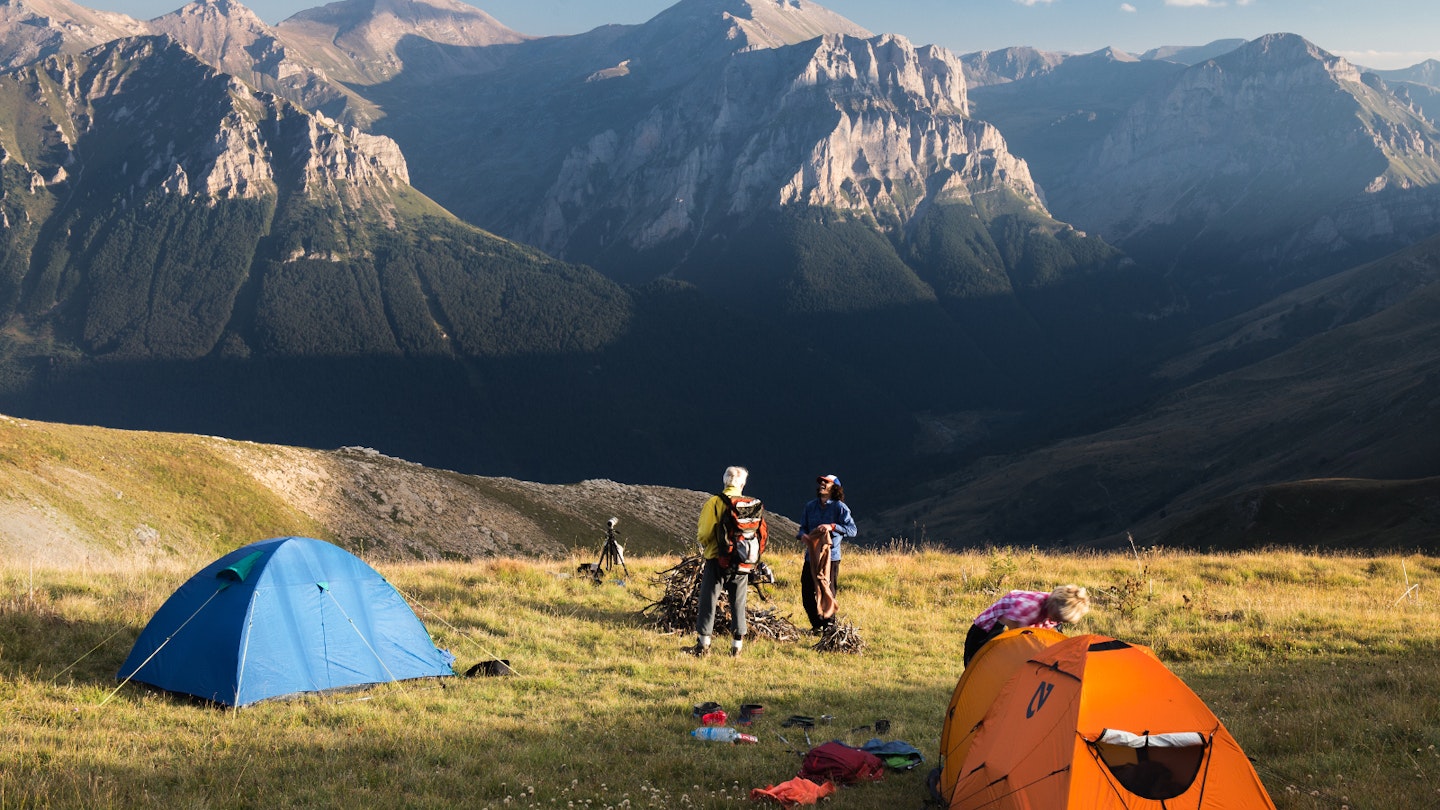Adventure Hiking in North Macedonia
At 3:30am, on the fifth day of an expedition along North Macedonia’s mountainous western edge, we traded our trekking poles for reins and mounted horses in search of yet another peak. Headlamps spotlighted the steam from our breath mixed with the fidgety smoke of rolled cigarettes. We left Galičnik, a village tucked into the folds of the Bistra massif, and plodded nose to tail, hoof to stone over seven dark kilometers and up nearly 1000 steep meters of elevation gain to the top of Mt Medenica.

For explorers and adventure travellers who don’t know this undiscovered expanse of North Macedonia, a country on the Balkan Peninsula in southeastern Europe, an excursion to this dovetailing string of summits and massifs (which include the Šar, Bistra and Jablanica Mountains) means some of the best, and most unheralded, hiking on the continent. However, even for the horseback members of the group assembled – all of whom live in the Balkans and have spent a significant amount of time scaling the region’s rugged topography – this was a unique experience.

Over the course of eight days, we hiked (and galloped) stages that began in northwestern North Macedonia, straddled the Kosovo border, and then ventured south along the Albanian frontier. Our journey traversed dynamic landscapes with stunning views, and included visits to centuries-old Orthodox churches and a monastery built by St Clement more than 1000 years ago. We stayed in quaint huts wedged into hillsides, waking to frosty morning dew clinging to our tents. Conversations with locals ranged from politics to sheep shearing as we learned how the mountains once defined the edges of Yugoslavia. The journey concluded on the shores of the ancient, UNESCO-protected, tectonic Lake Ohrid, which is 300m deep and stretches over 34km.

At this moment, however, we were still clip-clopping behind our guide Vasko Velickovski, the founder of Sherpa, a Galičnik-based outfit specializing in horseback tours. We stopped at the summit atop steeds growing impatient under our already sore backsides. It was 5:30am. A clear sky was widening as a new sun cracked the horizon and threw beams across an expanse gilded with morning dew.
To the north, I could begin to trace the itinerary from the past several days. The top half of our path had been dominated by a ridgeline wiggling along the Šar mountain range, which has more than 30 glacial lakes, some 200 endemic plant varieties, and wildlife including brown bears, lynx, and chamois. The trek – also a leg of the Via Dinarica mega-trail that runs through the Balkans from Slovenia to North Macedonia – provided a slalom course weaving between the country’s most inspiring peaks.

Aleksandar Donev, a local who organized our trip, trotted up and stopped his horse beside me as I stared across the maze of rippling mountaintops and tried to make sense of where we had been. ‘The beauty of this trail and this country is that you can pack an incredible range of activities, culture, and food into a pretty compact area,’ said Mr. Donev, whose multi-tasking, Skopje-based company Mustseedonia designs tailor-made trips and promotes responsible tourism across a region about the size of Vermont. ‘This makes Macedonia a perfect place to visit because you get both a pristine landscape and a chance to learn about history with a trek back in time to Europe’s old-world roots. I am glad we’re getting to see it now – because we will have to fight to keep it this way.’

In the distance, I could follow that pristine landscape up to the head of our trail and the Šar Mountain: the pyramid-shaped, 2498m Mt Ljuboten. There, we overnighted at Villa Ljuboten, a lodge that provided a perfect starting base and where we devoured a dinner of sausages, steaks, plump tomatoes, and grilled eggplants piled high on earthenware bowls and platters. We drank tumblers of homemade rakija (local schnapps) and planned our eventual hike south – a trek that would take us past the 2748m Titov Vrv, the tallest point along the Šar massif. We then left the range and scrambled to the top of the mammoth 2764m Mt Korab, the country’s highest spot, which looms like a beacon over both North Macedonia and Albania. Following our hikes, the group was engulfed by more than 730 sq km of dense, protected pine forests covering Mavrovo National Park and cradling its famously trout-filled lake.

‘One of the reasons I love hiking in this area is because you stay among the clouds on some of the highest summits in the Balkans,’ said mountaineer and guide Uta Ibrahimi, the owner of the Kosovo-based outfitter Butterfly Outdoor Adventure, as we reached Korab’s apex. ‘You just ride the peaks that run between three countries – at a sustained 2500m – and stay there… looking out on the beautiful world below for days and days and days.’
As we cantered back into Sherpa’s Galičnik ranch, the sun had shifted to the other side of the horizon. We were worn out and dusty, but rejuvenated by dinner. The smell of green, red, and yellow piquant peppers, cooking over an iron stove, wafted through the air above the corral. Wedges of young, white cheese sat beside pans of a savory pastry called burek, lovingly prepared by the locals. We sat at a rough-sawn table and raised our glasses of strong, amber-colored rakija.

‘There’s a wealth in the simplicity here that is magnificent,’ said Thierry Joubert, the director of Green Visions, a Bosnian-based adventure tourism company. ‘You have just what is needed, and that is more than enough. Perhaps the spirit and the feeling are a product of the particular remoteness of these mountains. Perhaps it is the nature of the people. All I know is, when you are hiking in Macedonia, you become part of it and you are truly content.’




